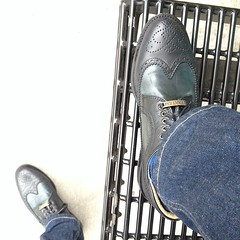50 Tips from NOED
The Nursing Online Education Database just posted a list of 50 sleeping tips. It’s a nice list with some really great things to try if you want to experiment with your sleep in subtle ways.
Keeping in mind that I am not a nurse nor a doctor, I still have some comments based on my own sleep experiences. I find it necessary to comment because very little scientific research has actually been done on sleep. Personal experiences add a necessary supplement to the modicum of information out there.
#5. Don’t go to bed with a full stomach
When attempting to get an 8 hour night of continuous sleep, I think this is one of the most important factors of having a both a restful night of sleep and an easy awakening without feeling groggy. Food digestion slows with the rest of your body functions at night and if you have food in your stomach at all, it will sit there for as long as you do. I have always felt groggy and unrested, regardless of how much sleep I get, in times that I have eaten before bed. I have been in the habit lately of actually staying up later (and getting less hours of sleep) just to insure that I rid my body of all food before going to sleep. It has paid off remarkably.
#14. Never go to bed hungry
I have to disagree slightly with this one. While, in my experience, going to bed starving or even with a blatant hunger is not a good idea, being right on the verge of getting hungry and leaning on the side of hunger has been quite a good experience for me.
When I was working dinner shifts in the restaurant industry, going to school during the day, I was on a fairly strict schedule. I ate dinner a little after 5pm and had a small snack (and plenty of water) during my shift. My work shift was great exercise–resulting in plenty of sweat and sore muscles throughout the week. I was always incredibly tired when I got off work between 12:30-1am. I went to bed a little hungry at about 2am and I would always wake up at about 8am or 9am, jumping out of bed with energy and feeling very ready to start the day (stopping at the kitchen before the shower). For breakfast, I always had a peanut butter and jelly sandwich (every day for over 9 months). Being allergic to milk gives me fun alternatives to the normal American breakfast cereal morning.
I was on that schedule for about 9 months, sleeping 6-7 hours a night consistently. I remember feeling more alert, better rested and happier than I have on any other sleeping regiment–even than the year I spent working graveyard, sleeping a consistent 10 hours a night, in which I had the best, longest, most vivid dreams that I could ever remember and even experienced my first lucid dreams.
#25. Take Melatonin
I tried Melatonin once and aside from vivid dreams and feeling well rested in the morning, it wasn’t a great experience (read Melatonin or LCD).
Last November, Science Daily published an article called < a href="http://www.sciencedaily.com/releases/2007/11/071115164438.htm">Hormone of Darkness: Melatonin Could Hurt Memory Formation At Night, which announces new sleep studies on zebra fish (grain of salt: they are not mammals, which may be important).
Now, there are other articles and research studies on mice (mammals) that show the opposite–that Melatonin actually may improve learning.
I decided to try Melatonin after reading the very detailed Melatonin Wikpedia article, which convinced me that it was worth trying and I may try it again since I still have a bottle of 2 stage release tablets.
Talk About Sleep has a great article on correct use of Melaton
I recommend to anyone wanting to experiment with it, to read all of the links within this post :)












